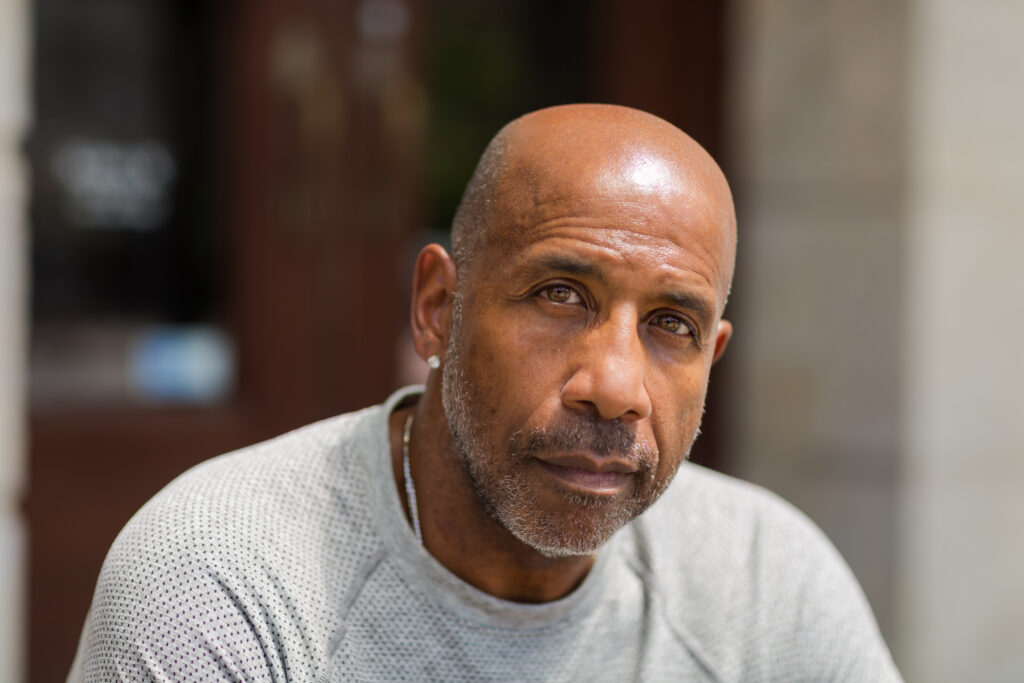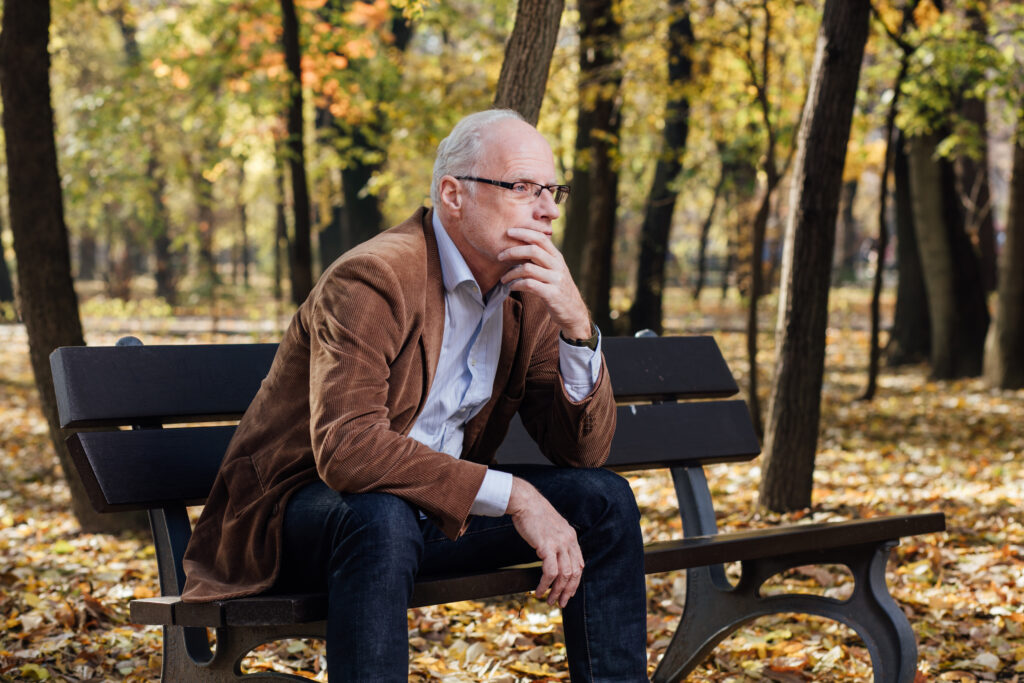Growing up as the family outcast creates invisible wounds that silently sabotage your happiness and success.

You always felt like the odd one out, didn’t you? The one who never quite belonged—no matter how much you tried to blend in, please everyone, or make yourself small just to avoid trouble. While others in the family might have had a seat at the table without question, you were constantly scrambling for scraps of acceptance. That kind of rejection doesn’t just sting—it lingers, shaping your sense of self in ways you never asked for.
Being the black sheep isn’t just about feeling excluded. It’s about carrying silent grief, unspoken shame, and a deep sense of not being good enough. Even now, those old patterns show up when you least expect them. You may have grown up and moved on, but those scars still shape the way you love, trust, and see yourself. Here are 13 very real ways your past as the family outcast continues to make life harder than it should be—and what it means to finally name it out loud.
1. You second-guess yourself even when you’re right.

Growing up being constantly blamed or overlooked left you walking on eggshells. No matter how carefully you spoke or how hard you tried to get it right, it seemed like someone always found fault, as per Lissy Abrahams in her website. As an adult, this turned into chronic self-doubt. Even when you know something to be true, a flicker of hesitation kicks in. You second-guess your instincts, replay conversations, and question whether you were too much—or not enough.
This isn’t about lacking intelligence or capability; it’s about the residue of criticism that was unfairly placed on you. You might find yourself seeking unnecessary confirmation from others or avoiding decisions altogether, just to avoid being “wrong.” It’s a frustrating loop, but one born from surviving an environment where your voice didn’t matter.
2. You’re overly cautious about trusting people.

When the people who were supposed to love you most let you down, it sets a trap. You learn that vulnerability equals danger. You adapt by putting up invisible armor, even with people who haven’t earned your suspicion. You expect betrayal before it happens, often mistaking caution for wisdom—but it’s really fear in disguise.
This guardedness might protect your heart, but it also keeps you from experiencing intimacy and connection. Even when someone shows genuine care, you hold back, scanning for signs that they’ll turn on you like others did, Dr. Arohi Vardhan of Mind Talk reported. Deep down, you want to trust, but the stakes feel too high. So you stay safe—and lonely.
3. You crave approval but hate needing it.

You spent years chasing validation from people who wouldn’t give it, hoping they’d see your worth. That hunger for approval didn’t vanish with adulthood—it just got more complicated, Ekua Hagan mentioned in Psychology Today. Now, you find yourself wanting recognition, but resenting yourself for needing it. It feels childish or weak to admit how much it still matters.
This internal tug-of-war can show up at work, in friendships, or even with romantic partners. You work hard, give your all, and then feel embarrassed for caring whether someone notices. The worst part? Even when you do get praise, it often feels unearned or temporary—because the real validation you craved never came when it mattered most.
4. You avoid conflict like the plague.

In your family, speaking up usually backfired. Whether it led to mockery, punishment, or being ignored, you quickly learned it was safer to stay quiet. That survival tactic became a habit. As an adult, you sidestep conflict—not because you’re passive, but because you’re conditioned to expect pain when you assert yourself.
Even when you’re right, even when your needs are valid, you might hold your tongue to “keep the peace.” But at what cost? The longer you silence your truth, the more resentment brews. You may appear agreeable, but inside, you’re shrinking. You know you should advocate for yourself—but the emotional risk still feels too high.
5. You struggle with feeling “good enough.”

You were made to feel deficient just by being yourself. No matter how much you accomplished, there was always a sense that you were falling short in your family’s eyes. Over time, that feeling calcified into a belief: “I’m not enough.” And it clings to you, even now, like a shadow that never quite disappears.
Compliments bounce off like raindrops on a windshield. Achievements feel like flukes, and self-celebration feels unnatural. You fear that if people really knew you, they’d see what your family seemed to see. But here’s the kicker: the story they told you wasn’t the truth. You’ve just carried it for so long, it feels like it is.
6. You constantly feel like you have to prove yourself.

Being the family scapegoat meant you were always hustling for acceptance. You couldn’t just be—you had to earn your place. That relentless drive didn’t disappear once you grew up. Now, it manifests in overachievement, perfectionism, and a deep fear of failure. You push yourself not just to succeed, but to validate your right to exist.
But no matter how much you do, the bar keeps moving. The promotions, degrees, accolades—they don’t satisfy the old hunger. Instead of fulfillment, you feel tired. Burned out. You wonder why it never feels like enough. The truth is, you’re chasing a kind of approval that should’ve been freely given, not earned.
7. You’re hyper-aware of people’s moods.

You had to become a master of reading the room—because your safety often depended on it. One wrong move could trigger criticism or ridicule. So you got really good at detecting tension, deciphering tone, and adjusting your behavior to avoid conflict. That hyper-vigilance didn’t go away; it followed you into every room you walk into.
Now, even when no danger is present, you’re still scanning for signs. A furrowed brow or a sharp tone can spiral you into self-blame or anxiety. You work hard to keep others comfortable, often at the expense of your own peace. It’s not your job—but it still feels like your responsibility.
8. You downplay your emotions to avoid being judged.

Your emotions weren’t safe in your family. Maybe you were mocked for being “too sensitive” or told to “get over it.” So you adapted—you became stoic, dismissive, or overly rational. You learned that showing feelings led to shame, not support. And now? You struggle to let yourself feel, let alone express.
You may pride yourself on being strong and independent, but underneath, there’s a backlog of unspoken emotion. You bottle it up until it leaks out as stress, anxiety, or anger. But vulnerability isn’t weakness. You deserve a space where your feelings are not just tolerated, but welcomed.
9. You overcompensate in your relationships.

You learned love wasn’t guaranteed. You had to earn it—or risk losing it. So now, you over-give. You’re the emotional caregiver, the planner, the one always checking in. You give so much because you fear what will happen if you don’t. Will they still love you if you stop proving your worth?
This overcompensation looks like generosity on the surface, but underneath, it’s fear-driven. You feel like you have to “perform” to be kept around. It’s a painful cycle—because while you give endlessly, you rarely feel fully received. You want mutuality, but you’re scared to ask for it.
10. You feel out of place even when you belong.

The black sheep identity is sticky. Even when you’re in healthy environments, surrounded by people who care, you can’t shake the feeling that you’re an outsider. You scan for evidence that you’re not wanted, even when none exists. It’s not that you’re imagining things—it’s that your nervous system is still wired for rejection.
So you overanalyze, withdraw, or dim your light. You tell yourself you’re just being cautious, but really, you’re protecting old wounds. It’s hard to let love in when you’ve spent your whole life believing you’re unworthy of it. But that doesn’t mean it’s not there.
11. You struggle to celebrate your wins.

In your family, success didn’t equal pride—it often brought resentment, dismissal, or silence. You learned not to expect applause, so you stopped seeking it. As an adult, you continue the cycle. When something good happens, you play it down or brush it off. You act like it’s no big deal—even when it is.
You might even feel uncomfortable when others praise you. There’s a voice inside whispering that you don’t deserve the spotlight. But you do. Celebrating yourself isn’t arrogant—it’s healing. And every small moment you allow yourself to feel proud is a quiet act of reclaiming your worth.
12. You’re fiercely independent—even when you don’t have to be.

When no one showed up for you, you learned to show up for yourself. That kind of independence is admirable—but it’s also lonely. You take pride in doing everything on your own, but it comes from a place of necessity, not choice. And sometimes, it’s just plain exhausting.
You hesitate to ask for help, not because you don’t need it, but because you’re afraid of being disappointed again. You’d rather struggle than risk another letdown. But true strength includes knowing when to reach out. It’s not a weakness—it’s a human need.
13. You question whether you’re truly lovable.

This is the deepest wound of all. If your own family struggled to love you—or showed love in ways that felt cruel or conditional—you naturally internalized that as a reflection of your worth. Even now, you may look for proof that you’re lovable, always afraid that one misstep will send people running.
You replay every mistake, over-apologize, or sabotage relationships before they can reject you. You long for love, but you don’t fully believe you deserve it. Here’s the truth: their inability to love you had nothing to do with your worth. It reflected their limitations, not yours. You are—and have always been—lovable. The real healing begins when you finally believe it for yourself.
